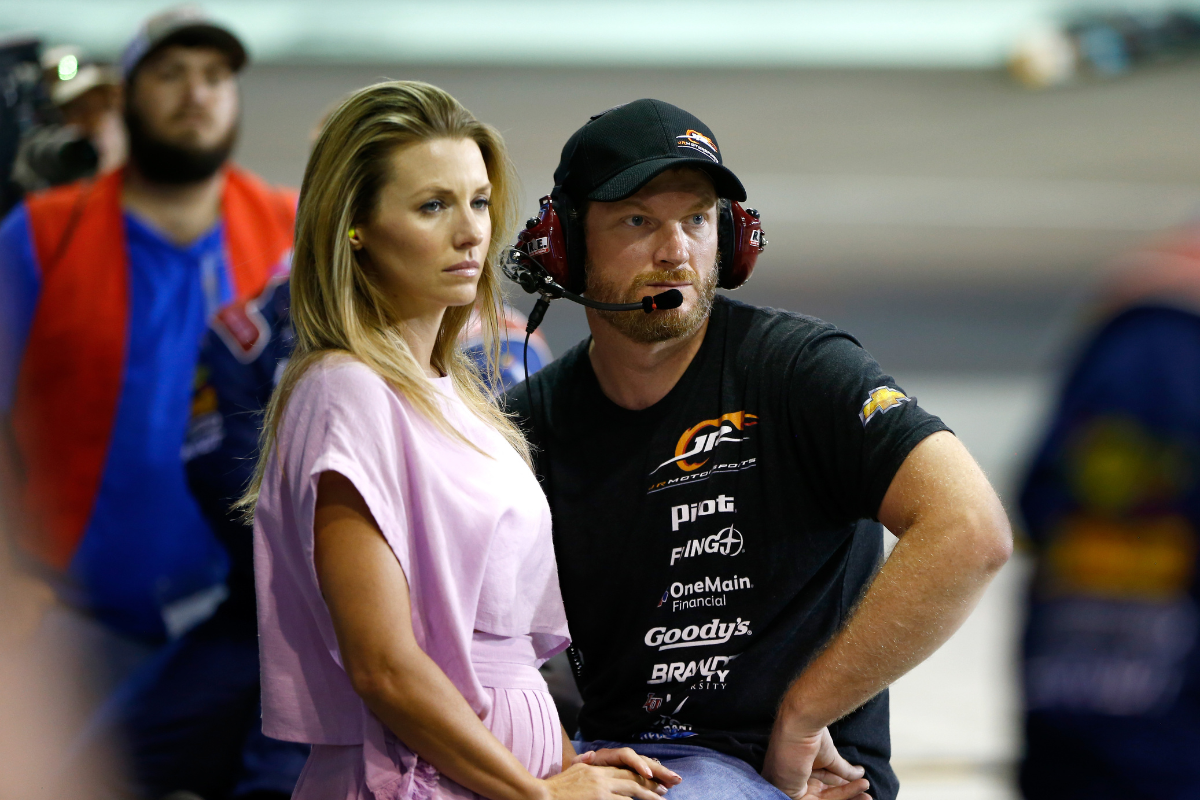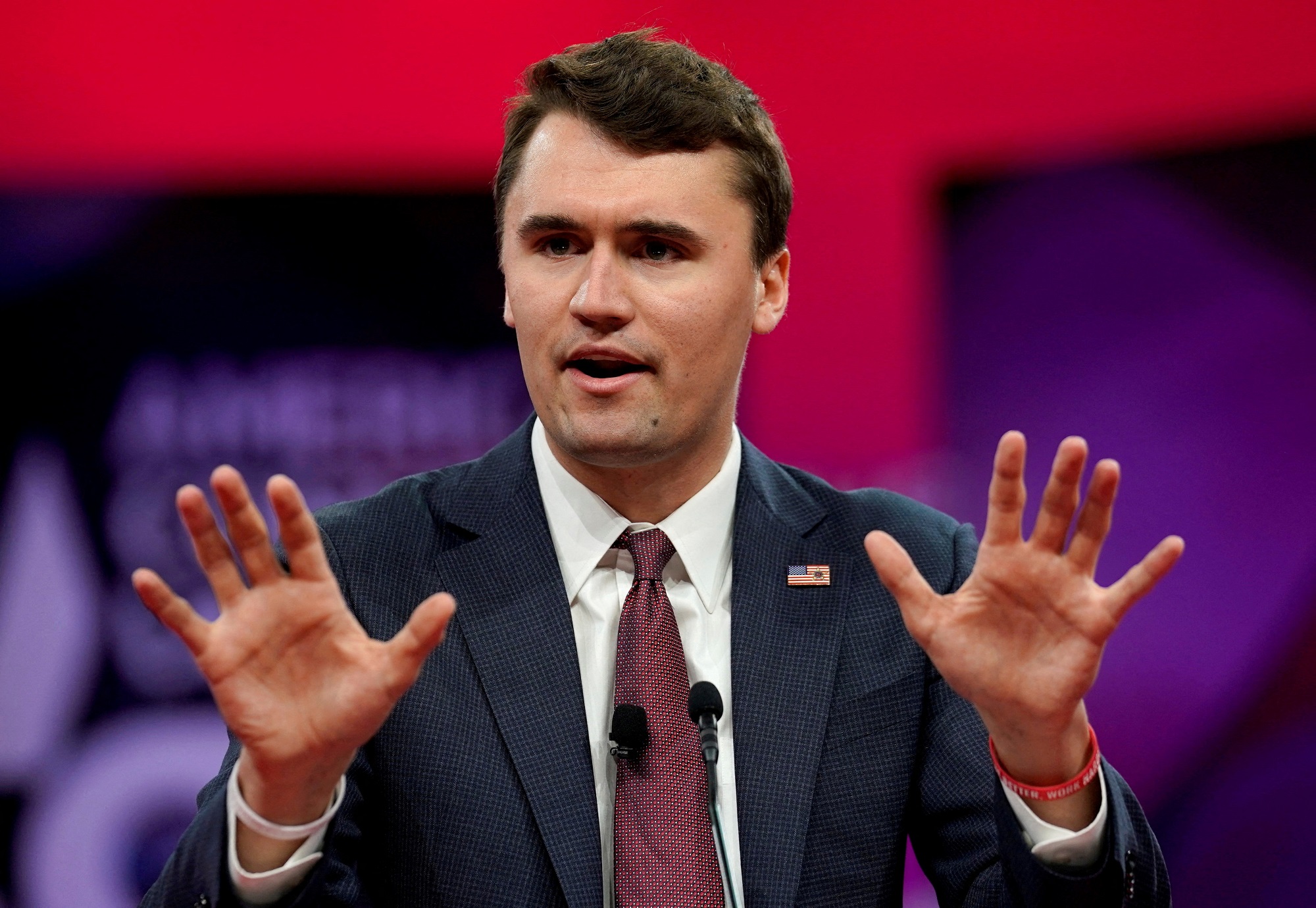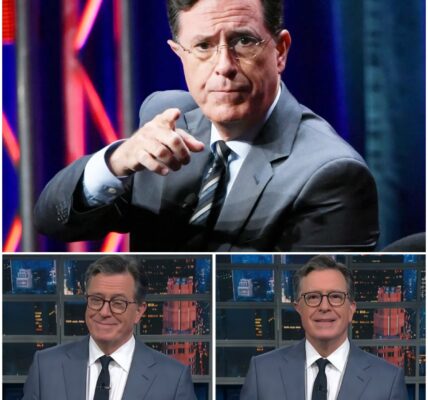“Dale Earnhardt Jr. Condemns Extremism After Charlie Kirk’s Tragic Death: ‘Just Because You Disagree Doesn’t Mean You Should Kill—We Are All Different, But We Are All One’”
The sudden and shocking death of conservative activist Charlie Kirk has ignited widespread national mourning and debate about the rising tide of political violence in the United States. Among the voices rising to condemn extremism is NASCAR legend Dale Earnhardt Jr., who has spoken candidly about the need for tolerance, civility, and respect for differing viewpoints.
In an impassioned statement released earlier this week, Earnhardt, whose career in racing made him one of America’s most recognized athletes, addressed the dangers of radical behavior within any community, including the LGBT community, following Kirk’s untimely passing.

“Just because you disagree with someone’s point of view, doesn’t mean you should just kill them,” Earnhardt said. “Argue, debate, agree or disagree. You have to be a dark person to want to kill someone for different interests, different strengths, different views. That’s what makes us special. We are all different, but we are all one.”
A Tragic Event Sparks National Reflection
Charlie Kirk, founder of Turning Point USA and a prominent conservative commentator, was fatally shot at Utah Valley University while attending a speaking event. His death sent shockwaves across the country, drawing attention to the perils of radicalization and the growing polarization that has infiltrated even community gatherings.

Kirk, 31, had built a career advocating for conservative causes, engaging millions of young Americans through his organization and media presence. While his viewpoints were polarizing for some, his life was abruptly ended in an act of violence that many are calling a symptom of the nation’s deeper cultural divides.
In the aftermath of Kirk’s death, public figures across the political spectrum have grappled with the implications. Dale Earnhardt Jr., known for his unifying presence in the world of motorsports and beyond, has taken a particularly firm stance against extremist behavior, warning that ideological differences should never lead to violence.
Earnhardt’s Message on Civility and Respect
Earnhardt’s statement has resonated with audiences because it emphasizes a principle that transcends political affiliations: the value of life and the importance of engaging with differing opinions constructively.
He directly addressed factions within the LGBT community that, in his view, have at times embraced extremist rhetoric or behavior. “It’s easy to feel passionately about your beliefs, but passion should never turn into aggression,” he said. “Violence solves nothing and diminishes the very causes we claim to fight for. We need dialogue, not destruction. Debate, don’t kill.”
Earnhardt’s words emphasize a philosophy of coexistence: one can disagree with someone’s beliefs without reducing them to a target. “We are all different, but we are all one,” he said. “Diversity is our strength, not a reason to harm each other. That is the lesson that Charlie Kirk’s death reminds us of.”
A Response to Growing Political Tensions
Experts on cultural polarization note that incidents like Kirk’s death highlight the urgent need for public figures to address extremism, particularly among young, impressionable audiences. While political and social debates have always been a part of American life, the level of hostility in recent years has reached unprecedented heights.
Earnhardt, a respected voice with a national platform, has been praised for using his visibility to call for reason and empathy. Unlike many statements issued in the heat of tragedy, his remarks were measured and reflective, urging both personal responsibility and societal awareness.
Dr. Melissa Harrington, a sociologist at the University of North Carolina specializing in political violence, said, “Dale Earnhardt Jr.’s statement is significant because it comes from someone outside the political sphere yet directly addresses the human cost of extremism. It reminds us that the consequences of radical behavior extend far beyond ideology—they affect families, communities, and the very fabric of society.”
Reactions from Fans and the Public
Earnhardt’s comments have drawn widespread support from both NASCAR fans and the general public. Social media platforms were flooded with messages praising his insistence on civility and his recognition of universal humanity, regardless of differing viewpoints.
“Dale just reminded us that human life is sacred,” one fan wrote. “We can disagree with someone’s beliefs and still respect them. That’s a message we desperately need today.” Another added, “Charlie Kirk may have had his views, but no one deserves to die for them. Thank you, Dale, for speaking truth.”

The Broader Conversation on Extremism
This tragedy has reopened a national conversation about extremism, online radicalization, and the potential for ideological differences to escalate into real-world violence. In the wake of Kirk’s death, law enforcement agencies and community leaders have emphasized the importance of promoting dialogue over confrontation, civility over aggression.
Earnhardt’s statement fits into this broader discourse, serving as a call to action for all communities to reflect on how disagreements are handled. By explicitly condemning the use of violence to settle ideological differences, he has provided a moral framework that transcends partisan divides.
Standing Against Violence, Not Views
Importantly, Earnhardt’s message does not seek to delegitimize debate or the expression of beliefs. Instead, it distinguishes between disagreement and harm, advocating for engagement over enmity.
“We can argue, debate, and disagree without resorting to violence,” he said. “That’s what makes a society strong. That’s what makes us human. To harm someone for their perspective is not just wrong—it is a darkness that has no place in our communities.”
This perspective resonates particularly strongly in a nation grappling with an increasingly fragmented media landscape, where echo chambers and hyperpartisan rhetoric often amplify anger and intolerance. Earnhardt’s voice serves as a reminder that even amid division, mutual respect remains possible and necessary.
Looking Forward: Lessons From Tragedy
While Charlie Kirk’s death is undeniably a moment of sorrow, figures like Dale Earnhardt Jr. are working to ensure that the tragedy serves as a catalyst for reflection and action. His call for restraint, dialogue, and empathy underscores the importance of approaching disagreement constructively.
Communities, educators, and policymakers are taking note, emphasizing the need to teach conflict resolution, digital literacy, and empathy to younger generations to prevent future acts of violence stemming from ideological extremism.
Earnhardt’s words have also inspired conversations in sports, media, and public life, illustrating how prominent voices can influence discourse in a positive way. Many hope that his statement will encourage others to speak out against extremism, regardless of political or social alignment, reinforcing the notion that basic humanity must come first.
Conclusion
Dale Earnhardt Jr.’s response to Charlie Kirk’s death is a powerful reminder that violence is never an acceptable response to disagreement. His statement—emphasizing debate, dialogue, and the intrinsic value of every individual—offers a message of hope and unity in a moment of national grief.
“Just because you disagree doesn’t mean you should kill,” Earnhardt said. “We are all different, but we are all one.”
As communities continue to mourn Charlie Kirk and grapple with the broader implications of ideological extremism, voices like Earnhardt’s highlight the path forward: one that prioritizes understanding over hostility, conversation over conflict, and shared humanity over division. In an era marked by polarization, his words stand as both a warning and an inspiration—a reminder that civility, compassion, and unity are essential, even when opinions differ.
https://www.youtube.com/shorts/Lx6AvkN9nwU




